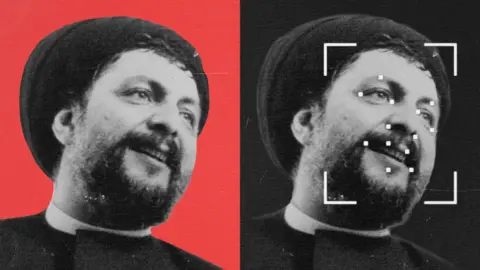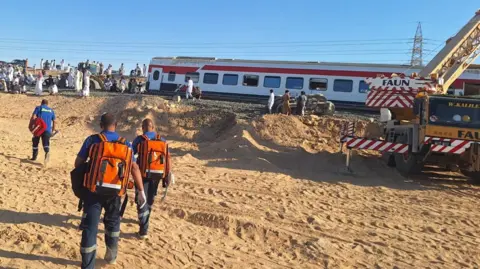Greece has taken the controversial step of suspending asylum applications for migrants from North Africa for a period of three months, following an alarming uptick in arrivals. Prime Minister Kyriakos Mitsotakis announced that those arriving by boat will face arrest and detention, asserting that the government is sending a “message of determination” to both traffickers and migrants. “The money they spend may be completely wasted,” he stated, highlighting the urgency of the situation.
The announcement comes as Greece faces a staggering 350% increase in migrant numbers compared to the previous year, particularly affecting the islands of Crete and Gavdos. Recent reports indicate that over 2,000 individuals have landed on Crete within just days, alongside 520 rescues off the coast. With a total of 9,000 migrants arriving since the start of 2025, officials are expressing concerns over the strain on local resources, as personnel struggle to manage the inflow.
Government spokesman Pavlos Marinakis emphasized the ongoing and escalating nature of this migration wave, while the Western Crete Coast Guard Personnel Association's president highlighted the toll on their operations. With logistics stretched thin, some migrants are temporarily housed in a market hall due to insufficient accommodation facilities, with reports including families with young children.
In response to the crisis, Greek, Italian, and Maltese authorities, along with the EU’s migration commissioner, attempted to address the situation by visiting Libya to discuss migrant departures. However, their efforts were thwarted by Libya’s rival governing body, which rejected their entry. Despite this, Mitsotakis has indicated that the Greek military is ready to assist Libyan authorities in controlling boat departures from their coast.
While the Greek government seeks to curb migrant flows, human rights organizations like Amnesty International have condemned the treatment of migrants intercepted by the Libyan coastguard. Detained individuals often face inhumane conditions in detention camps, prompting calls for a more humane approach that considers the dignity and lives of those seeking refuge.
The announcement comes as Greece faces a staggering 350% increase in migrant numbers compared to the previous year, particularly affecting the islands of Crete and Gavdos. Recent reports indicate that over 2,000 individuals have landed on Crete within just days, alongside 520 rescues off the coast. With a total of 9,000 migrants arriving since the start of 2025, officials are expressing concerns over the strain on local resources, as personnel struggle to manage the inflow.
Government spokesman Pavlos Marinakis emphasized the ongoing and escalating nature of this migration wave, while the Western Crete Coast Guard Personnel Association's president highlighted the toll on their operations. With logistics stretched thin, some migrants are temporarily housed in a market hall due to insufficient accommodation facilities, with reports including families with young children.
In response to the crisis, Greek, Italian, and Maltese authorities, along with the EU’s migration commissioner, attempted to address the situation by visiting Libya to discuss migrant departures. However, their efforts were thwarted by Libya’s rival governing body, which rejected their entry. Despite this, Mitsotakis has indicated that the Greek military is ready to assist Libyan authorities in controlling boat departures from their coast.
While the Greek government seeks to curb migrant flows, human rights organizations like Amnesty International have condemned the treatment of migrants intercepted by the Libyan coastguard. Detained individuals often face inhumane conditions in detention camps, prompting calls for a more humane approach that considers the dignity and lives of those seeking refuge.




















